"Connection Is Why We're Here":
Brene Brown's splendid contribution to our lives
Every time I read a book or otherwise assess a writer or thinker, I find what I agree with and what I disagree with the thinker about, as well as what I find important and what I find unimportant in the thinker’s views. Brene Brown may be the only thinker whose writing I find both 100 percent true and 100 percent important. I find her contribution to our lives to be unsurpassed. She is the one leading Gen X public thinker (born in the 1960s and 1970s) whose thinking and guidance, it seems to me, are indispensable.
Brown is a professor of social psychology at the University of Houston (and does visiting work of some kind at UT-Austin), a podcaster (since 2020), and the author of six books which have reached number one on The New York Times Best Sellers list. She’s been famous for a decade and a half now, since her 2010 TEDx talk “The Power of Vulnerability”, which remains one of the five most-viewed TED talks of all time.
There is plenty of empirical evidence behind what Brown is saying. She relies both on quantitative research — data-driven, statistical — and qualitative research, which involves “story-catching”: really listening when participants in a research study talk about their lived experience.
Brown is not difficult to understand. We can easily weave her research findings and advice into our daily conversation. We can call our cousin and say, “What she’s saying really might help you out of the slump you’re in.”
So what is Brown telling us? She’s teaching us about four universal human experiences: shame, vulnerability, empathy, and courage. And she’s teaching us about the opposite of shame: “shame resilience” or “wholeheartedness”.
Let’s start with shame:
Mere mention of the word “shame” triggers our discomfort and avoidance.
Shame is not guilt — feeling bad about something we said or did or failed to say or do — but feeling bad about who we are, feeling bad about our self. Feeling unworthy of connection and love and belonging. Forgetting our best sense of self. And thus withdrawing, isolating, hiding, disconnecting from people — from our relationships and communities.
Next, vulnerability:
Vulnerability is not oversharing but involves knowing when and with whom it’s safe to be vulnerable. Being vulnerable means sharing our true feelings with someone and inviting them to share theirs.
When we are vulnerable with each other, each of us shows up as our authentic self, with our imperfections. We show up despite the risk of emotional exposure. And we are both present and open to what the other is experiencing, without judgment.
When this happens, we both move beyond fear of the risk, beyond uncertainty, beyond shame. Our vulnerability with each other deepens our connection, deepens our relationship. We both reach a new level of self-acceptance as well as trust in each other.
It’s true not only in our personal relationships but in our professional relationships. By confronting our shame with a colleague, we can both open up the space for more innovation, creativity, and change.
To make vulnerability work, we need to interact from empathy:
Empathy is not pity, Brown shows us. Empathy does not involve detached condolences or coming from a distant, disconnected, superior place.
Empathy involves our presence — making space for emotions. Empathy is being attentive to the person, really listening to them, really hearing them, really seeing them in their struggle. We sit compassionately with the other person in their discomfort and pain until we understand what they are experiencing.
All this engagement with our discomfort and vulnerability is something Brown calls “rumbling”. (Of course, when rumbling gets too overwhelming for us, if it really drains or depletes us, it is fine to pull back and even to put up a boundary.)
We’ve got to walk through vulnerability to get to a place of courage.
Life is full of risks and uncertainty. Any time we take a chance when we don’t know how things will turn out, we are demonstrating courage. Any time we “show up” when we feel we might fail or might be judged, we are demonstrating courage.
Brown suggests practicing courage like we’d build a muscle or any other skill set. We can become courageous by first taking small risks.
With courage, we lean into uncertainty. Despite our fear and shame, we show up and let ourselves be seen. And, despite our discomfort, we take action.
And, ultimately, we live with wholeheartedness.
Despite our imperfections, we simply must remain keenly aware of our inherent value. We must engage with life from a place of worthiness. Brown calls this “wholehearted engagement” or “wholeheartedness” — and she’s spent as much time studying wholeheartedness as she has studying shame.
“Wholehearted living” is fully engaging with our life experience despite all the risks and uncertainty. We are never numb to our emotions — or never for long. If we numb our negative emotions like shame, we end up numbing our positive emotions like love and joy. We are more likely to flourish when we accept life’s negative emotions and accept life’s positive emotions.
More and more, we courageously show the world our true, authentic self. We face hard conversations when we need to. We are open to create space for deeper connection. We are open to collaborating.
The more of us who understand each other’s shame, the more we truly care about each other and truly support each other emotionally and truly validate each other, the more we embrace each other in our vulnerability, the more empathy and compassion we have, the more we will counter shame and the more shame will lose its power.
On a deeper level, most of us need to take time to examine our values. If we are too reliant for our self-worth on our body image, our successes, and our perfect performance in all our social roles, we need to reframe our self-worth.
Ultimately, we all need more self-compassion and we all need to recognize our shame, be aware of what triggers it, and stop to address it. And when handling our shame on our own isn’t fully resolving it, we should not hesitate to seek the emotional support of someone we trust.
I’m personally grateful to Brene Brown. I intend to live from her findings and advice much more the rest of my life than I have to date. And I honestly cannot think of any popular thinker today who is offering us better guidance than Brene Brown — guidance that will, if adhered to and acted on, improve the quality of life for each of us and for all of us.



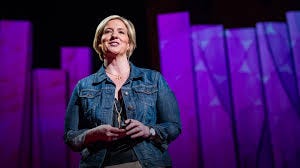
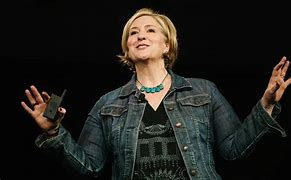
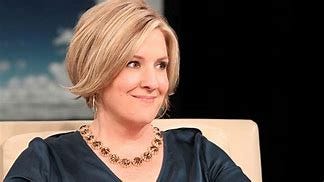
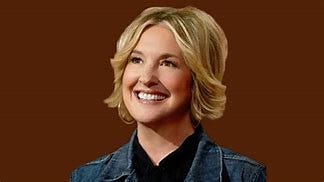


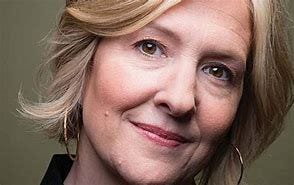

I’m grateful that Ms. Brown has shared her wisdom with the world.